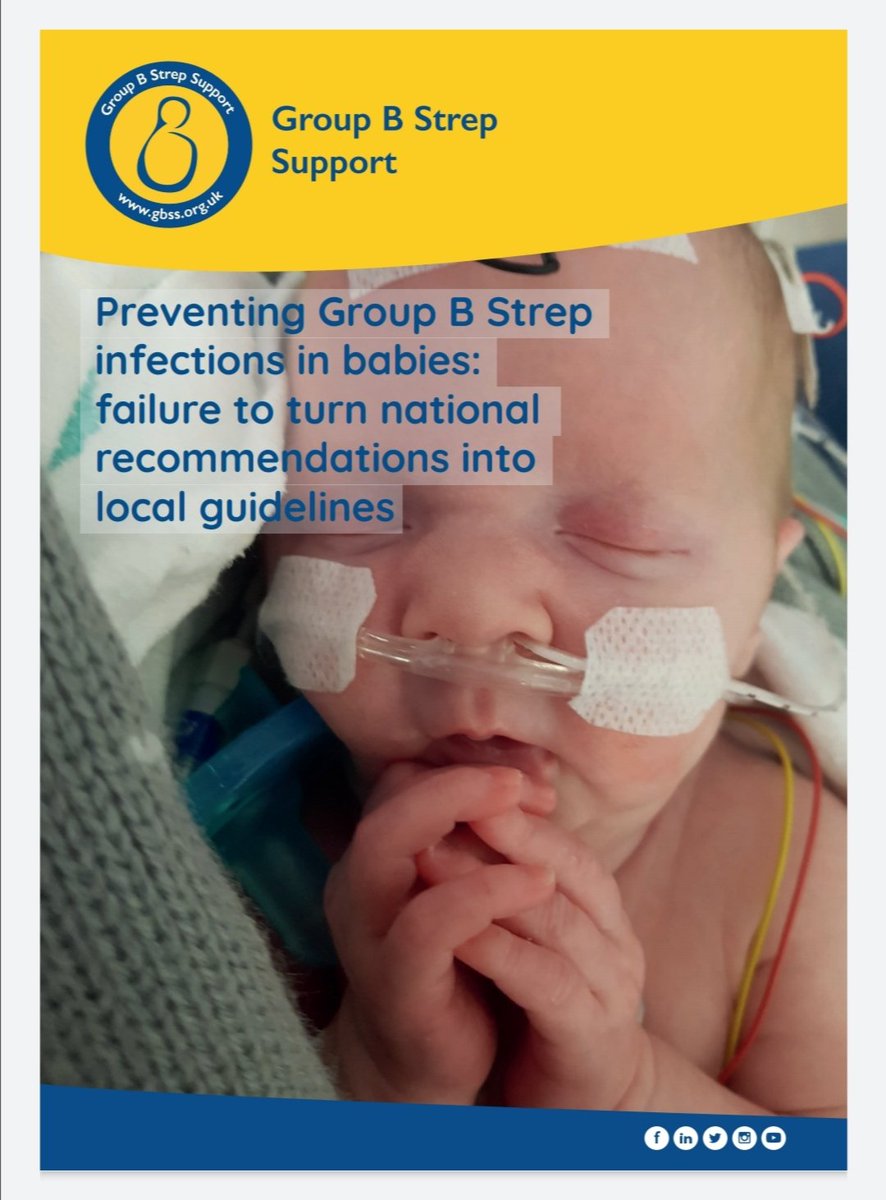Poor adoption of @RCObsGyn Group B Strep guideline fails expectant parents & their babies & leaves NHS trusts vulnerable to legal claims - we make 6 key recommendations for change
#groupBStrep
https://gbss.org.uk/latest-news/uk-hospitals-failing-to-follow-guidelines-on-group-b-strep/
#groupBStrep
https://gbss.org.uk/latest-news/uk-hospitals-failing-to-follow-guidelines-on-group-b-strep/
1. Around 20% of Trusts haven't updated their GBS guidelines since the @RCObsGyn 2017 guideline update, leaving themselves out of step with clinical best practice.
We recommend these Trusts update their guidelines immediately.
We recommend these Trusts update their guidelines immediately.
2. Under half of Trusts (46%) provide information on GBS to all pregnant women, contradicting @RCObsGyn guidance.
We recommend Trusts provide all pregnant women with information on GBS, we have free info materials to do this available at https://gbss.org.uk/professional-resources/leaflets-bulk-order/
We recommend Trusts provide all pregnant women with information on GBS, we have free info materials to do this available at https://gbss.org.uk/professional-resources/leaflets-bulk-order/
3. Where Trusts do provide women with information, nearly three-quarters use the co-produced @RCObsGyn and @GBSSupport leaflet.
We recommend the remaining quarter of Trusts use our free co-produced patient info leaflet, available at https://gbss.org.uk/product/free-leaflet-group-b-strep-and-pregnancy/
We recommend the remaining quarter of Trusts use our free co-produced patient info leaflet, available at https://gbss.org.uk/product/free-leaflet-group-b-strep-and-pregnancy/
4. The majority of Trusts did not collect or hold data on numbers or rates of EOGBS or LOGBS infections, meaning they cannot track their local rates or performance.
We recommend Trusts routinely collect local data on GBS infection in babies.
We recommend Trusts routinely collect local data on GBS infection in babies.

 Read on Twitter
Read on Twitter


